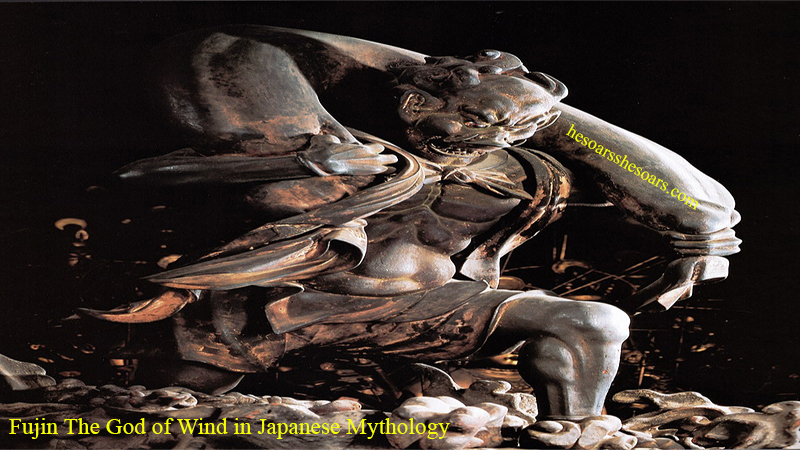Japanese mythology. Is a treasure. Trove of gods and. Legendary creatures. Each with its. Unique role and. Significance. Among these fascinating. Deities is. Fujin, the god. Off wind. Whose stories and. Symbolism Are deeply. Woven into. Japanese culture. In this article. We will delve into the. Intriguing myths. And tales surrounding Fujin The God of Wind.
The Identity of Fujin The God of Wind
Fujin. Also known. As Futen or Futen. no Tora. Is one of the. Elemental. Gods in Japanese mythology. He is the deity. Responsible for. Controlling the wind. force of. nature that has both. Nurturing and. Destructive aspects. In the Japanese pantheon of gods. Fujin is a powerful figure. Closely associated with the natural world.
Physical Appearance and Symbols
Fujin is commonly. Depicted as a fearsome. Deity with a. Wild appearance. He is often. Portrayed with a. Disheveled mane of hair and a ragged scarf or garment made of leaves, signifying his affinity with nature and the untamed aspects of the wind. His most distinctive feature is the large bag slung over his shoulder, from which he releases the winds to sweep across the land.
The bag, known as the “fukuro” or “wind bag,” is a symbol of Fujin’s control over the wind and its ability to bring both gentle breezes and tempestuous gales. The imagery of Fujin gripping the wind bag while unleashing gusts of wind is a common representation in Japanese art and mythology.
Fujin and Raijin: Partners in Balance
Fujin is often depicted alongside Raijin, the god of thunder and lightning, as the Raijin-Fujin, a pair of deities responsible for controlling the weather. While Raijin wields thunderbolts and lightning, Fujin is the master of the winds. The combination of their powers is believed to create storms and other natural phenomena.
The partnership between Raijin and Fujin symbolizes the delicate balance of nature, with thunderstorms representing the harmonious interplay of wind and lightning. In Japanese folklore, Raijin and Fujin work together to maintain equilibrium in the natural world, emphasizing the importance of this balance in traditional Japanese culture.
Fujin’s Role and Significance
Fujin’s role as the god of wind holds profound significance in Japanese culture. The wind is both a life-giving force, bringing rain and favorable weather for crops, and a destructive one, capable of causing typhoons and devastation. As such, Fujin is viewed as a deity who must be appeased and respected.
In ancient Japan, people conducted rituals and ceremonies to seek Fujin’s favor and protection from destructive winds and storms. Fujin was often invoked during agricultural festivals, where prayers and offerings were made to ensure bountiful harvests and calm weather.
Myths and Legends of Fujin
While Fujin appears in various myths and legends, there is no single comprehensive story that encapsulates his character. Instead, he is a recurring figure in Japanese folklore, often playing a pivotal role in stories related to the natural world.
One legend recounts Fujin’s ability to influence the outcome of battles by controlling the winds. In this story, Fujin assisted the legendary warrior Minamoto no Yoshitsune by using his powers to disorient and defeat enemy forces during a naval battle. This tale highlights Fujin’s role as a protector and ally to those who seek his assistance.
Another legend features Fujin in a cautionary tale about the consequences of angering the wind god. It tells of a man who boasted about his ability to withstand strong winds, only to be swept away by Fujin’s tempestuous gusts as punishment for his arrogance. This story serves as a reminder of the wind’s unpredictable nature and the need for humility in the face of natural forces.
Fujin The God of Wind in Modern Culture
Fujin’s influence extends into modern Japanese culture and art. His striking appearance and association with nature continue to inspire artists, particularly in traditional Japanese tattoos, where he represents the power and unpredictability of the wind.
Additionally, Fujin’s imagery is occasionally featured in contemporary media and literature, where he symbolizes the elemental forces of nature and their impact on human life.
Conclusion ( Fujin The God of Wind )
Fujin, the god of wind in Japanese mythology, embodies the awe-inspiring and unpredictable aspects of nature. His role as a guardian of the winds, both benevolent and destructive, underscores the profound connection between the Japanese people and the natural world. As a symbol of balance and the elemental forces that shape the world, Fujin continues to be a captivating and enduring figure in the rich tapestry of Japanese folklore and culture.




